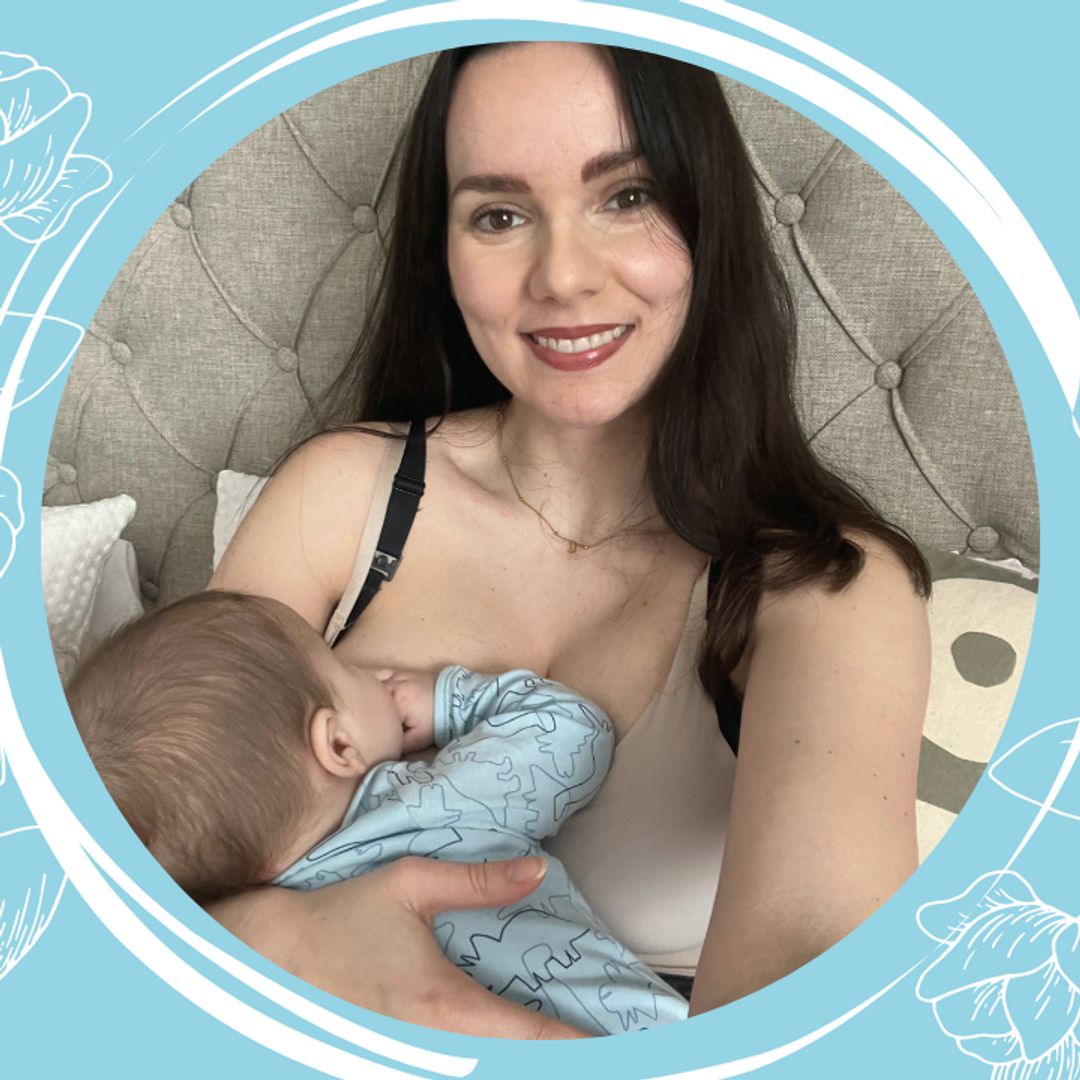Ask any mum and she'll tell you that those first special weeks at home with a newborn baby go by in a blur of nappies, feeding, very little sleep, and repeat!
READ: This Morning's Dr Zoe Williams reveals 3 ways to overcome 'mum guilt'
While women are informed about the three trimesters of pregnancy, not much focus is often placed on the postnatal recovery period after the baby arrives when mum is healing from birth and adapting to parenthood.
WATCH: Royal babies make their debuts
HELLO! spoke to award-winning doula and author Kicki Hansard, who is one of the expert speakers at The Baby Show at London Excel in March, for her advice on the postnatal period.
For those not familiar with the term 'doula', a doula is a trained companion (although not medically trained) who supports a woman through pregnancy, childbirth and after her baby is born.
Here, Kicki Hansard shares her tips for postnatal recovery…
Kicki told HELLO!: "I can honestly say that in the two decades that I’ve been working with new families, I have come across very few that put some time aside during their pregnancy to plan for the postnatal period.
"It might come as a surprise to hear that most cultures in the world have traditions around supporting and nurturing a new mother and family for up to six weeks post-birth. Family, friends, and other relatives will rally around to ensure nourishing foods are cooked, take care of household tasks, and ensure the new mother is freed up to spend time recovering and getting to know her baby.
"However, this doesn’t happen so much anymore in the western world and new mothers are usually expected to get back to normal, whilst often also recovering from major surgery.
"It might be worth knowing that whatever kind of birth you have, you will be left with a sizeable wound at the site where the placenta was attached inside your womb, hence taking it easy should be prioritised.
"As a postnatal doula, I talk to my clients about the fourth trimester, the time after your pregnancy when the baby adjusts to life outside of the womb and the mother explores and learns about her new role. I believe that it is just as important to write a postnatal recovery plan as it is to ensure that you put your preference for your baby’s birth down on paper."
So here are my five Doula DOs and my five Doula DON’Ts:
Five Doula Dos
1. Surrender to the here and now
Life with a newborn is often unpredictable, and plans can be hard to stick to. Often new parents are wishing that things were different and looking for a time in the future when they won’t be woken up throughout the night to respond to their baby. The sooner you can surrender to the current situation, the easier it is. The frustration in whatever situation you’re in frequently comes from wishing it to be different, rather than accepting the situation as it is. Things are always changing from day to day, so be present in the now.
2. Accept help
You know the saying 'it takes a village to raise a child' - and this is most definitely a fact. We are not meant to be looking after a newborn baby on our own because it can be really tiring and difficult at times. If you have a partner, make sure they take time off work to be with you. Ask friends or family to come around a few times a week to give you a break or hire a postnatal doula to support you. You can find one on www.thedouladirectory.com
MORE: How Kate Middleton has changed since becoming a mother
3. Prepare and outsource
Prepare nutritious meals and put them in your freezer. Make sure you have enough sheets and pillowcases for at least three changes, without having to run the washing machine. Arrange a food train with friends and family so that a series of meals can be prepared and scheduled to be delivered. Get someone to take the laundry away and bring it back clean and folded. Ask for gift vouchers for a local cleaning firm or postnatal doula support, instead of gifts for your baby.
4. Invest in rest
I would recommend that you spend the first week after giving birth in bed with your baby, skin-to-skin, as much as possible. The second week on the sofa and don't go out for walks until the third week. Your body needs to rest, and your baby will want to be close to you all the time. Sleep when your baby sleeps or ask someone to look after your baby so you can put your head down.
5. Enjoy your baby
It’s easy to become stuck in the mundane tasks of looking after your baby and forget to just be with your baby! The first six weeks really do fly by, so try and enjoy this time too. Spend time just talking and singing to your baby and be amazed by this little miracle that you have created. This time won’t come again.
MORE: Celebrity babies due in 2022: Vogue Williams, Rosie Huntington-Whiteley and more pregnant stars
Five Doula Don'ts
1. Compare yourself and your baby to others
You, your baby, and your family are all unique and there are so many variables of what is considered to be 'normal'. Try not to look at what your friends and peers are doing, or how their babies are behaving. You will see your baby's personality shining through and look back when they are older and recognise that it was there from their very first breath.
2. Insist on doing it all
Yes, you will do things one way and your partner or other support person will do it their way. So, you might need to drop your standards, and when you think you've dropped them far enough, then drop them some more, and then a bit more again. You don't have to do it all to prove that you’re a good mum, it takes courage to ask for help.
3. Try to get back to normal
When you focus on getting back to normal, or to what it was like before your baby arrived, you will be fighting a losing battle. You will never get back to exactly that life, but you will gradually adjust and get back to a new 'normal'. Don't be in a rush! It took nine months to grow your baby so expect it to take the same time to fully recover. Physically, it takes up to six weeks for your womb to get back to the size it was before you were pregnant.
4. Beat yourself up
Having a baby is a major life event and it's a bit like starting a new job. We can accept that it might take a few months to get used to things, get to know your colleagues and how things get done. It’s pretty similar when you start your new job as a mother. So be patient and speak kindly to yourself and remember, there's no such thing as a perfect parent – good enough is ample!
5. Listen to what everyone is saying
There are so many experts, books, well-meaning relatives, and friends that want to tell you what to do and how to do it. It can become rather noisy in your head, with contradictive advice and outdated information. Pick one person that you feel makes sense, who is giving you information rather than telling you what to do. Most of all, listen to your gut instinct, what do you feel like doing? Believe me, you’ve got this!
You can hear more from Kicki Hansard at thebabyshow.co.uk taking place 4-6 March at London Excel. The UK's Leading Baby & Parenting Shows in London ExCel, London Olympia, and the Birmingham NEC. Everything for Bump, Baby & You Under One Roof.
Make sure you never miss a ROYAL story! Sign up to our newsletter to get all of our celebrity, royal and lifestyle news delivered directly to your inbox.












